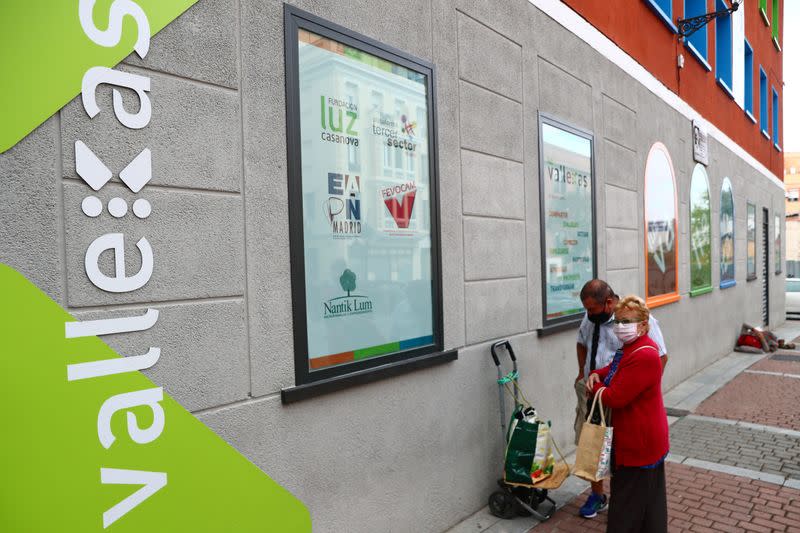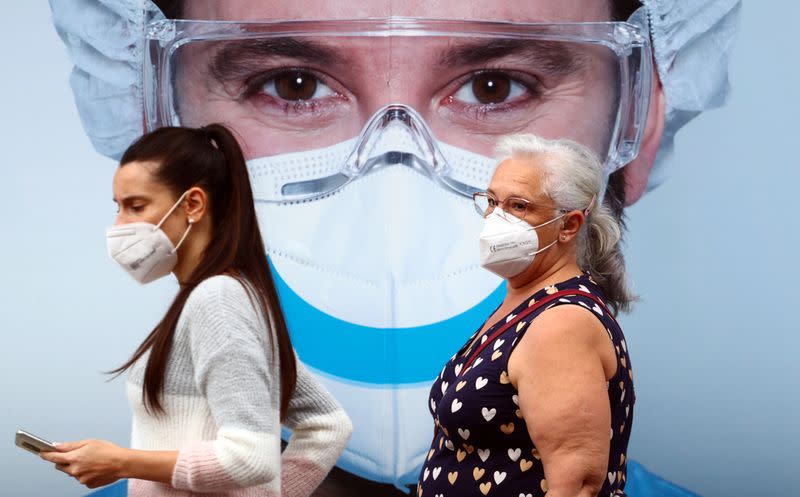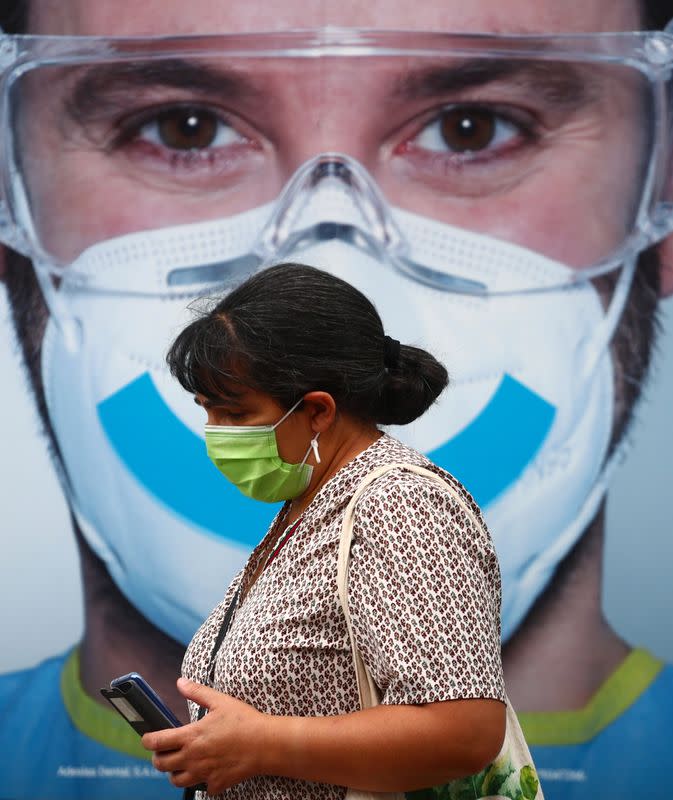Madrid region orders partial lockdown in poorer areas hit by COVID-19
By Silvio Castellanos and Clara-Laeila Laudette
MADRID (Reuters) - The regional government of the Spanish capital Madrid ordered a lockdown from Monday in some of the poorer areas of the city and its outskirts that are home to about 850,000 people, after a surge in coronavirus infections there.
Regional leader Isabel Diaz Ayuso said on Friday movement between and within areas in six districts would be restricted, but people would be able to go to work in Spain's hardest-hit region.
Residents in Madrid's poorer districts had said earlier they felt abandoned, stigmatised and feared new restrictions would deprive them of income.
After the announcement, a few hundred protestors gathered in front of the offices of Madrid's regional government to demand Ayuso quit.
"The health centres are saturated in the south of the city and they have not done anything about it," said protester Rosa Baras, 65.
Ayuso, who attracted criticism for saying this week "the way of life of immigrants" was partly to blame for the rise in cases, said the areas had been chosen because contagion levels there exceeded 1,000 per 100,000 people.
"We need to avoid lockdown, we need to avoid economic disaster," Ayuso told a news conference. "We don't think it's time to restrict all citizens, but rather to apply measures in areas we have perfectly identified."
Access to parks and public areas will be restricted, gatherings will be limited to six people and commercial establishments will have to close by 10 p.m. in the areas.
INEQUALITY GAP
The gap between poorer and richer areas is at the heart of a debate over how to curb an increase in new cases.
Restrictions will affect Vallecas, a southern district with a lower average income and higher immigrant population, which has one of the highest infection rates in Madrid. It is almost six times higher than in Chamberi, one of the wealthier, northern districts.
The health system "is more paralysed here, they have us out here waiting, crowded, queues everywhere," retiree Mari Paz Gonzalez said. "We are abandoned... They left us in the hands of God."
"As soon as you cross that bridge things change. As soon as you cross it the neighbourhood changes," retiree Carmen Ibarra said, walking through Vallecas.
The inequality gap and its correlation to coronavirus infection rates are also a hot political issue in Barcelona, the second-largest city.
Some 640,040 people have been diagnosed with COVID-19 in Spain, health authorities said on Friday, with a rise of 4,697 in the past 24 hours.
The health ministry data showed an increase of 14,389 compared with figures released on Thursday, but this included retrospective cases dating back a number of days.
Nearly 30,500 people have now died from COVID-19 in Spain.
(Additional reporting by Jose Elias Rodriguez, clara_laeila Laudette; Writing by Ingrid Melander and Andrei Khalip, Additional reporting Graham Keeley, Editing by Timothy Heritage)







